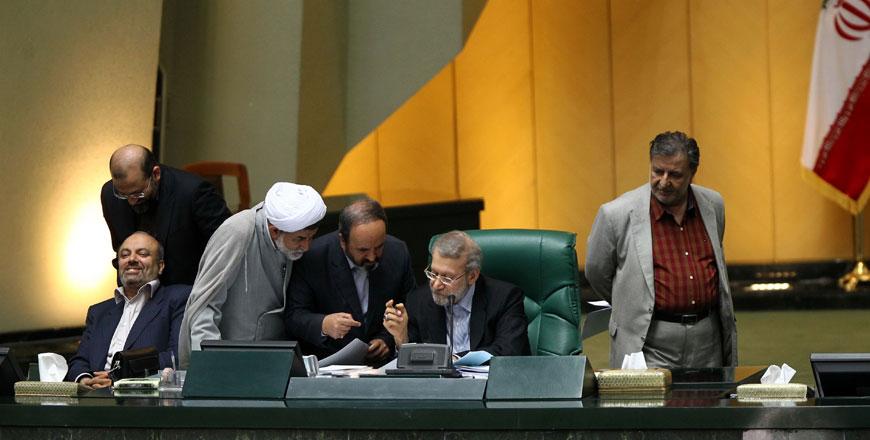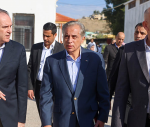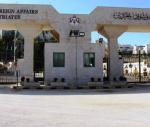You are here
Iran lawmakers pass bill to protect nuclear programme
By AFP - Jun 23,2015 - Last updated at Jun 23,2015
TEHRAN — Iran's parliament approved a controversial bill Tuesday that it said would protect the country's nuclear programme, but which could also hinder final negotiations on a deal with world powers.
The move re-exposed persistent tension between President Hassan Rouhani's government and lawmakers in Tehran, where hardliners routinely voice doubt about the merit of talking to the West.
One of Rouhani's vice presidents said the bill, which still has to be signed into law by Iran's Guardian Council, was unconstitutional and would not help its negotiators at "a sensitive point" in the talks.
The move, just one week before the deadline for an international agreement on the Islamic republic's disputed nuclear programme, lays down terms for MPs' accepting it.
Rouhani, a moderate who aims to end Iran's diplomatic isolation, wants an agreement that can lift sanctions that have hobbled the economy.
However, critics of his nuclear policy, including members of the conservative-dominated legislature, say too many concessions have been made and, using the bill, they demanded a bigger say.
The draft law says the government must "preserve the country's nuclear rights and achievements", a reference to retaining the ability to enrich uranium and keeping all nuclear facilities open.
Such demands have already been enshrined in an outline agreement struck on April 2 between Iran and the P5+1 powers — Britain, China, France, Russia and the United States plus Germany.
But the bill, whose backers said it would protect Iran's negotiating team from further demands, goes further and says sanctions must be lifted "on the day Iran starts implementing its obligations".
The timing of removal has become important as members of the P5+1 have said it can only happen upon international verification that Iran has met requirements laid down under a deal.
Some 214 lawmakers out of 244 present supported the bill, with 10 against, six abstentions and the remainder not voting.
Bargaining stepped up
Bargaining over a final deal, due by June 30, intensified Monday when Britain and France reiterated that comprehensive inspections of Iran's nuclear facilities are essential.
The bill allows inspections of nuclear sites but not military or sensitive non-nuclear establishments. Such limitations are likely to alarm Western powers given their longstanding suspicion Iran is covertly developing an atomic bomb, an allegation it denies.
Vice President Majid Ansari, who was prevented from addressing parliament, later told state media the terms of a nuclear deal were not a matter for lawmakers.
"The engagement of MPs on this issue is of no help to the nuclear team and it could create problems in the negotiation process," he said, citing an infringement of Article 176 of the constitution.
That, he said, reserves defence and strategic issues to Iran's Supreme National Security Council, a body of ministers, generals and appointees of Supreme Leader Ayatollah Ali Khamenei.
It is chaired by Rouhani. Foreign Minister Mohammad Javad Zarif, the government's chief representative in the nuclear talks, is also a member.
Ansari's remarks came despite the bill being watered down Sunday, with the task of supervising a nuclear deal being given to the SNSC. Parliament had wanted formal oversight.
Roadblocks in the nuclear talks include details on sanctions and inspections as well as Iran's future nuclear research.
In a measure similar to that taken in Tehran, President Barack Obama has given US lawmakers 30 days to review any deal.
Obama, a Democrat, has faced persistent opposition to his Iran policy from Congress, which is controlled by Republicans, who by their right of review may try to block an agreement.
Other critics of the nuclear diplomacy include Israel's Prime Minister Benjamin Netanyahu, who warned Congress in March against ratifying "a bad deal".
Iran's parliament speaker, Ali Larijani, has said lawmakers will not stand in the way if Khamenei, who has the last word on all matters foreign and domestic, says an accord is in the national interest.
Related Articles
TEHRAN — Iran's parliament curtailed its own power to block a nuclear deal with world powers Sunday, effectively removing a longstanding thr
TEHRAN — Iran's powerful Guardian Council on Sunday rejected a bill on joining the UN convention against terrorist financing seen as crucial
Iran's president came under fire from MPs Tuesday for branding his critics as “political cowards” and urging them "go to hell" if they insist on opposing his policies.














